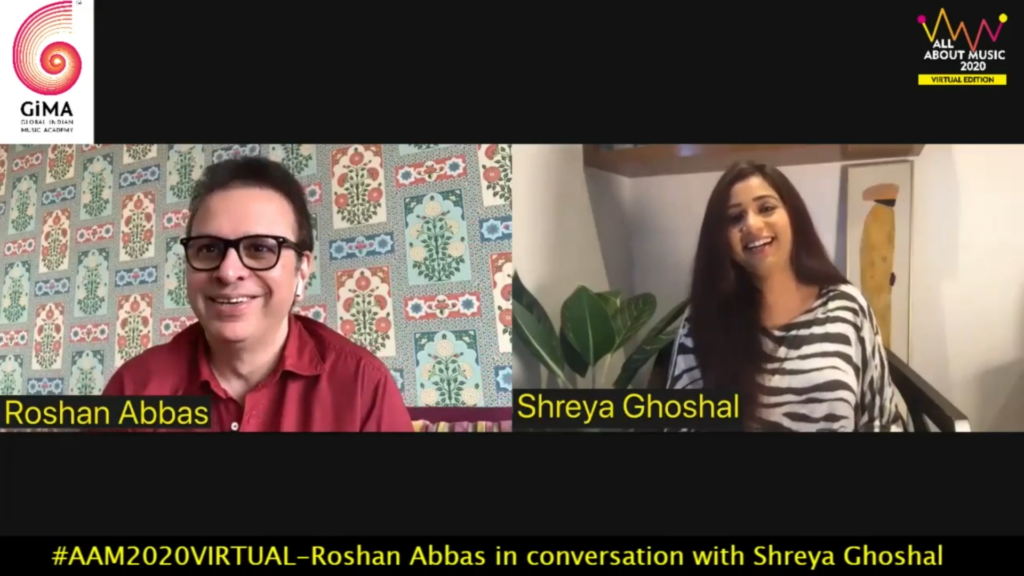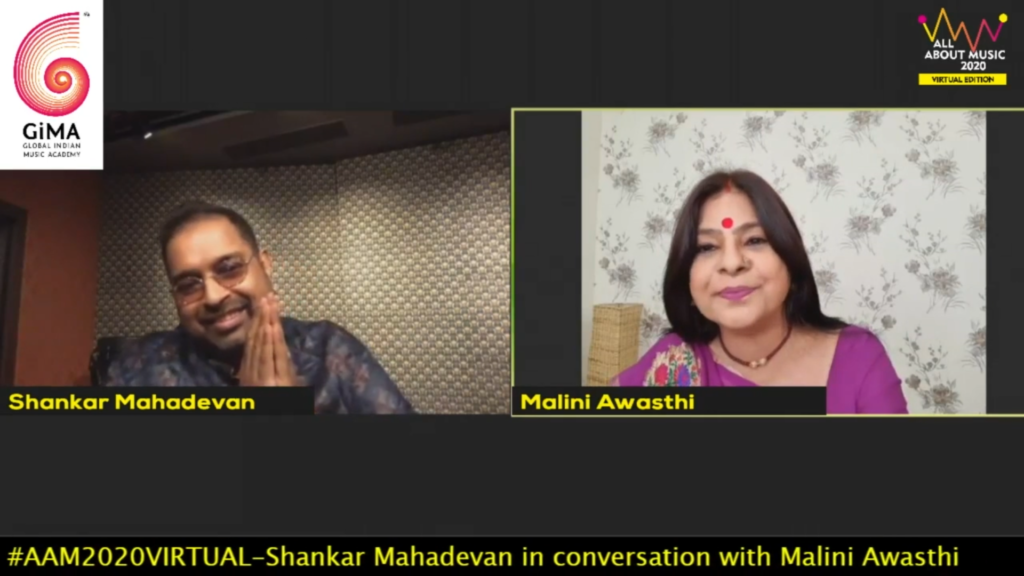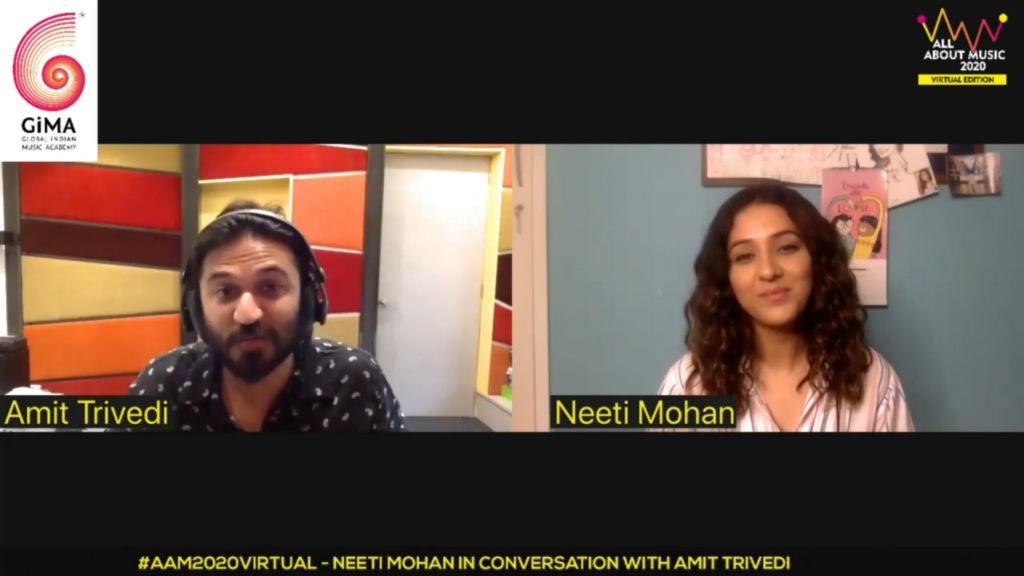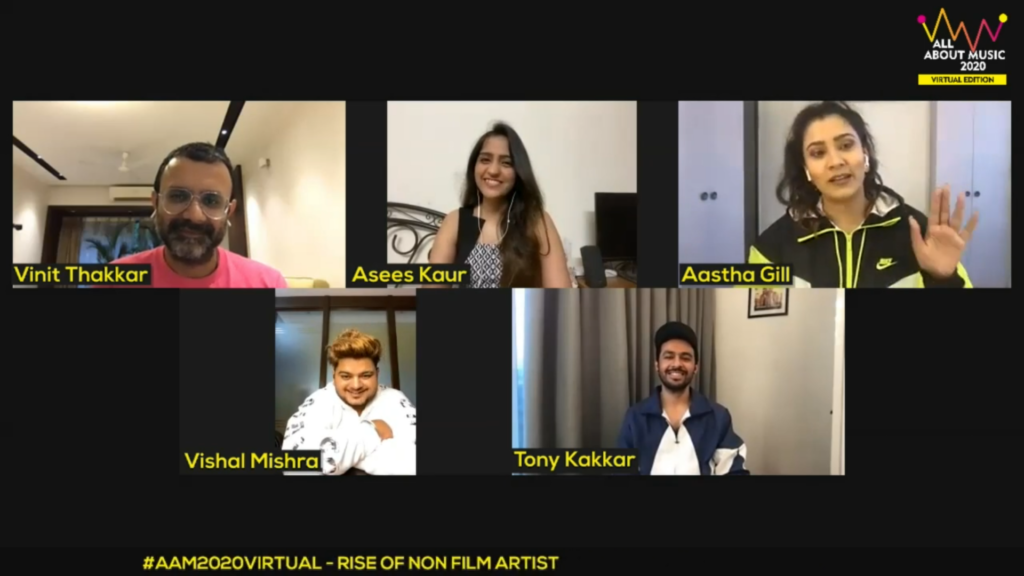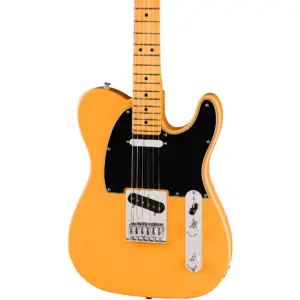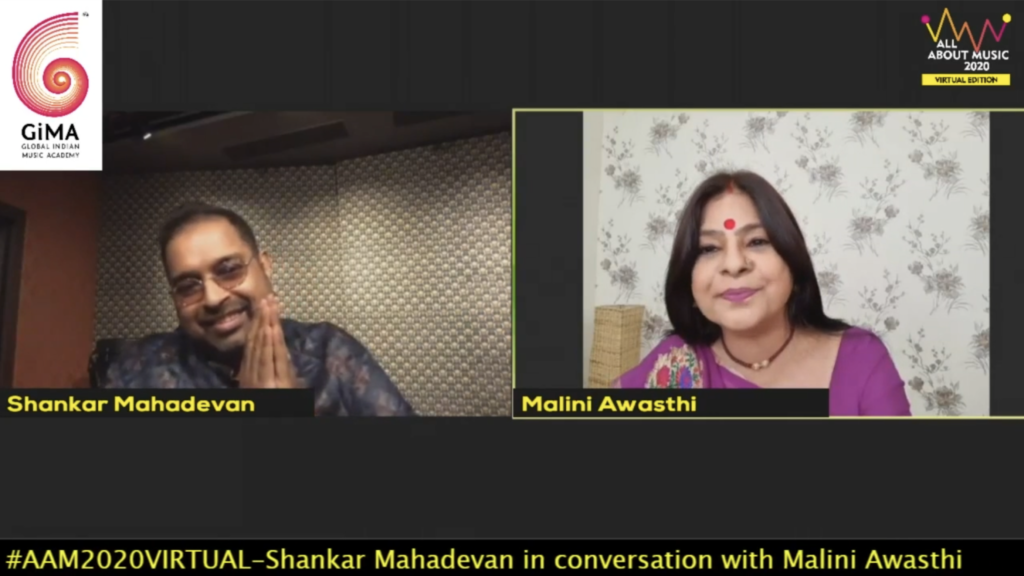This year’s edition of the music conclave All About Music (AAM) was conducted virtually because of the ongoing pandemic. Yet this served as
no limitation and AAM’s sessions drew in large audiences from all over for a three day-long celebration of music and much more. Performances and workshops aside, there was an abundance of discussions that were conducted via conference calls. These sessions helped not just in celebrating the artists and executives behind the music scene but also attempted to understanding solutions and discussing future possibilities making for good learning for all those who are carving their territories in the ever-changing music scene.
There were of course, live performances from many independent and
signed artists, most of whom performed in intimate surroundings like
their room or an outdoor garden. The line-up included many familiar as
well as new names like Leah Khambata, Avanti Nagral, Paridhi band,
Aarya, Hanita Bhambri, Ketan Mohite, and Chaar Hazaari. Of course, this phenomenon of online performances is still a new experience for many artists who were habituated to live gigs in the pre-corona world.
This added to a sense of genuine curiosity, experimentation, and rawness on the artists’ part. As the singer-songwriter Tushar Raj said in the middle of his acoustic performance on Day 3, ‘This is at times, super awkward for me. Just bear with me.’ Raj was also having a bit of a cold which prohibited from reaching high notes and yet he gave his best; his Ek Khwaab Tha being a standout track from his performance.
The cosiness of their live gigs increased with the singers often taking breaks and interacting with the audience, touching upon their themes, inspirations, and what got them into music in the first place. The aforementioned Raj for instance, revealed that he picked up music because he had nothing to do in his room whenever his parents put him
under house arrest in his younger years. He picked up guitaring and singing from the internet thereafter. It’s only ironic that he was performing for a live audience again within the vicinity of his room.
However, it were the masterclasses and the conference conversations that led to a lot of productive talks amongst maestros and titans of the music industry. There was something or the other being offered for viewers who aren’t just interested in music but also whatever it is that goes behind and beyond music.
So, there was Dar Gai with her session on music videos and storytelling. The acclaimed Ukranian-origin director has helmed two motion pictures and directed leading music videos for artists like Prateek Kuhad and Ritviz. Gai stressed on how organic ideas can come to creative artists through anything be it their surroundings or past memories, emphasising the fact that storytelling is a skill that has been in existence from the start of humankind and would continue to stick with us.
Another aspect of the music industry was touched upon by composer Subhajit Mukherjee who has scored for various ad films. He revealed the
perplexities associated with scoring for advertisements and how it’s not as simple as it seems. ‘The real challenge is that you have to tell a story through your music within the course of 30 to 90 seconds. Unlike a film’s
score, you don’t get a lot of additional time to build the story.’ He said, while giving examples from his own work like a recent Kia motors ad that features a bizarrely unique, multi-instrumental and non-linear musical
pattern.
Such specialised master classes carried on for the majority of the event
till the third day, one of the last ones being an amusing workshop on using auto-tune by noted composer and sound engineer Sunny MR. He stressed on the importance of auto-tune and how enhanced vocals are used in the majority of music in today’s times. ‘There should be no shame, no taboo around auto-tune anymore. Everyone uses it.’ He said, while demonstrating its application on his music software, ranging from subtle enhancements to robotic ‘chipmunky’ sounds.
Continuing these intellectual and informative insights were the conference call sessions in which usually a music journalist oversaw the discussion between greats of the music industry, as they discussed on relevant themes. These themes ranged from the pitching music to gaming/streaming platforms to the possibility of India having its own global phenomenon like K-Pop.
On the last day, one of the major sessions involved a talk on the rise of non-film artistes. While there are many non-film independent artists making their mark on the scene, the panel chose to go to a more commercial direction rather than an artistic one. That’s why the speakers were Punjabi/Hindi music artists like Aastha Gill, Asees Kaur, and Tony Kakkar. While the artists above mostly gave viewers a more organic, self-made picture, the singers on this panel gave insights on the business angle of music and working with teams to manufacture their songs as a product.
As Aastha Gill revealed that she hardly writes her own lyrics and relies on her team, she also touched upon how her success might also be based on the fact that she often attempts to pick themes that connect with the younger demographics. This is how Tony Kakkar too tries to tap in his target audience. ‘While my love songs come from an honest place, my dance tracks can often be derivative. But that’s how it works and that’s how the audience connects.’
The diversity of All About Music’s conferences could be seen as it covered both rising and veteran artists of various genres and backgrounds. Contrasting with the above discussion was a session titled Back To The Roots, that stressed on reviving and maintaining the sanctity of genres like ghazal and folk music.
The panel included ghazal veteran Pankaj Udhas, Bhojpuri folk legend Kalpana Patowary, and music director and ghazal singer Roopkumar Rathod. He emphasised on the need for artists to respect the art of ghazals and learn languages like Urdu in the first place before experimenting with ghazal and related genres. Patowary who originally hails from Assam, talked about how phonetic of a language, and the culture behind the language is as important as learning music.
Meanwhile, Udhas talked about how the ghazal has been a very significant genre since decades but we need alternate solutions to preserve and foster it. He gave several suggestions adding that, ‘We need to have dedicated radio stations to genres like ghazal. In foreign countries like the United States, one would hear radio stations chiefly dealing with jazz or pop or rock etc.
Indian radio needs to follow similar methods.’ Such discussions and sessions went on till the night of the last day which closed with an engaging interaction between two greats of the Indian music industry, composer AR Rahman and playback singer Arijit Singh. To put it in a nutshell, this year’s virtual edition of All About Music was one of its kind connecting people from the comfort of their homes and informing them about various trends and subcultures of the current Indian music scene.
Follow them on social media-
Instagram: https://instagram.com/allaboutmusicin
